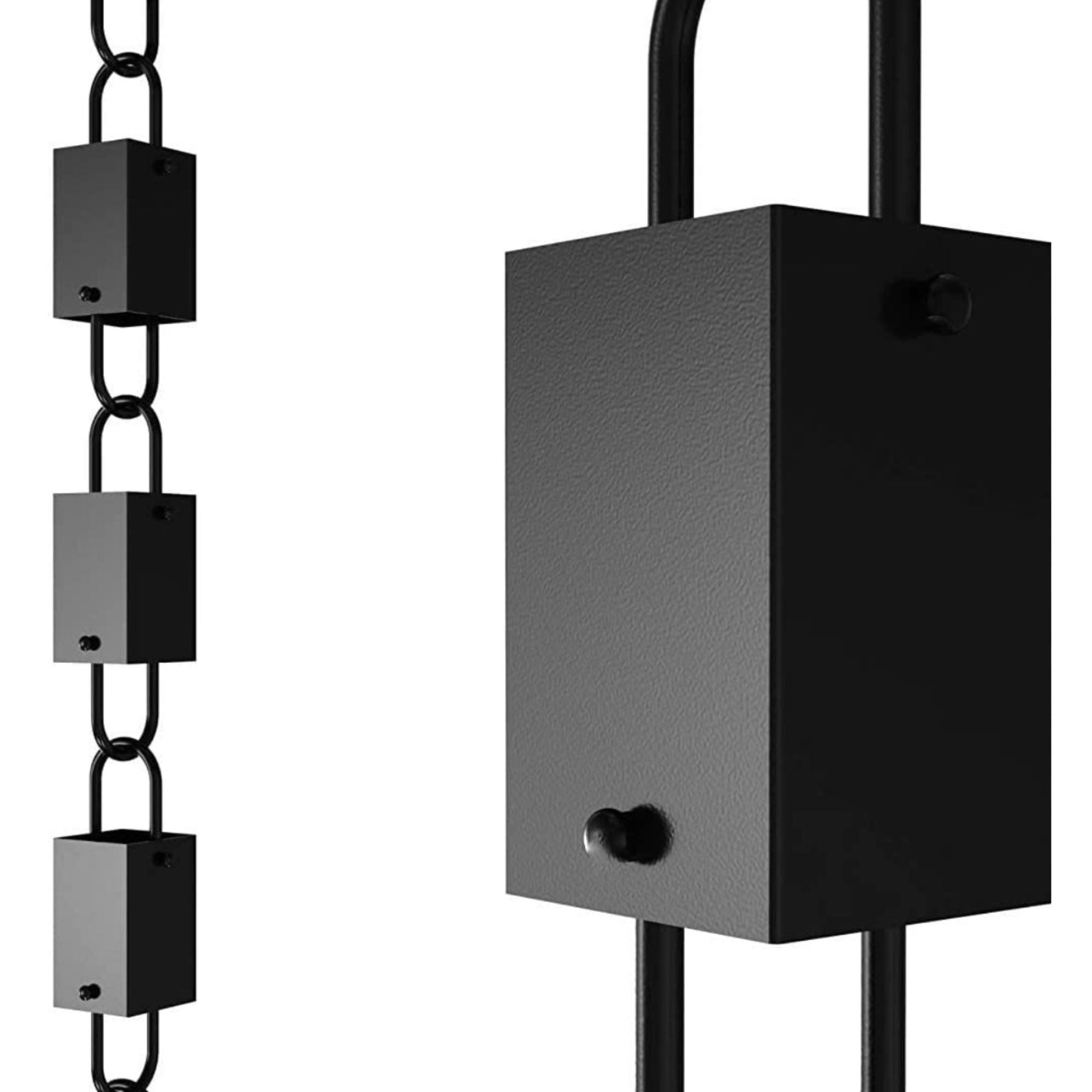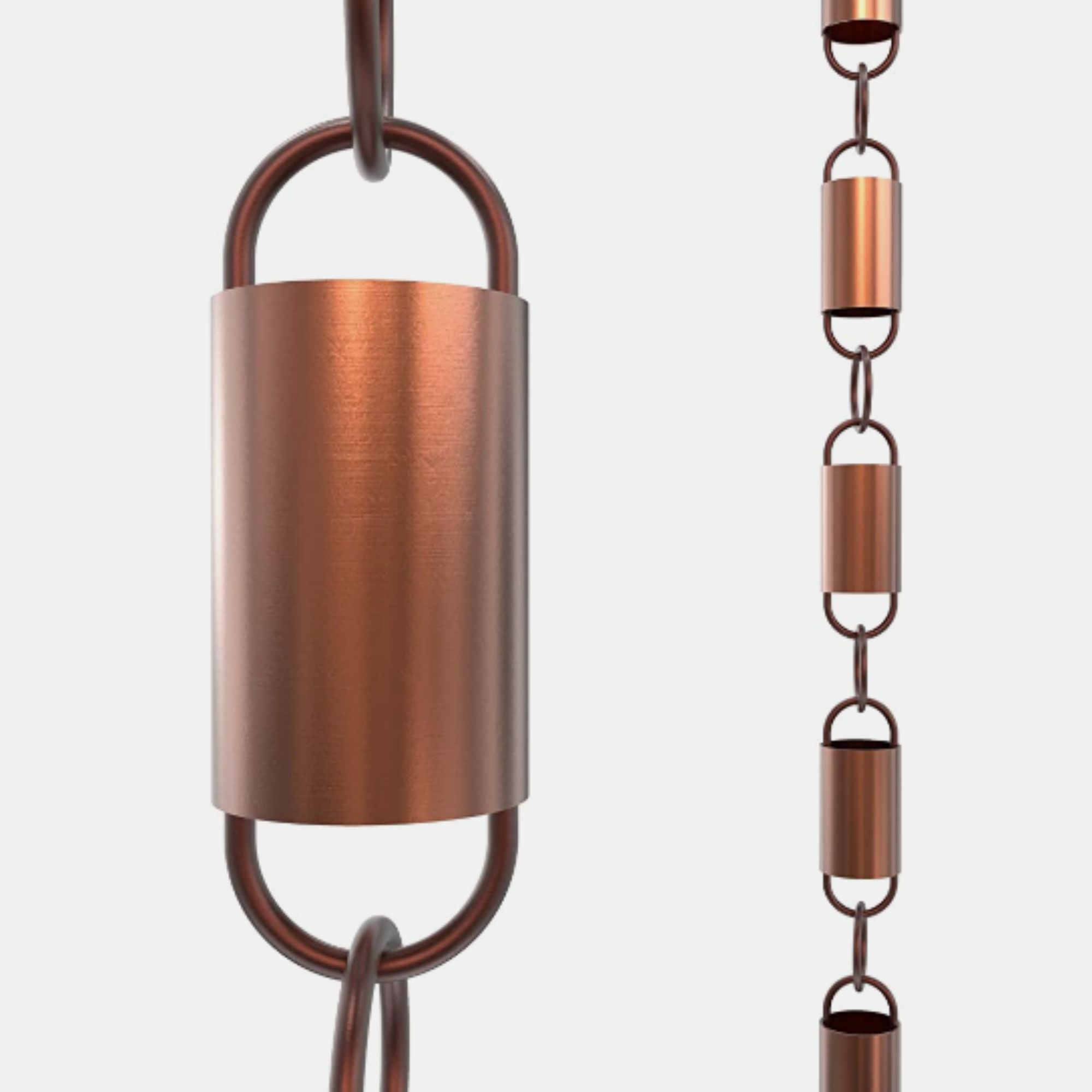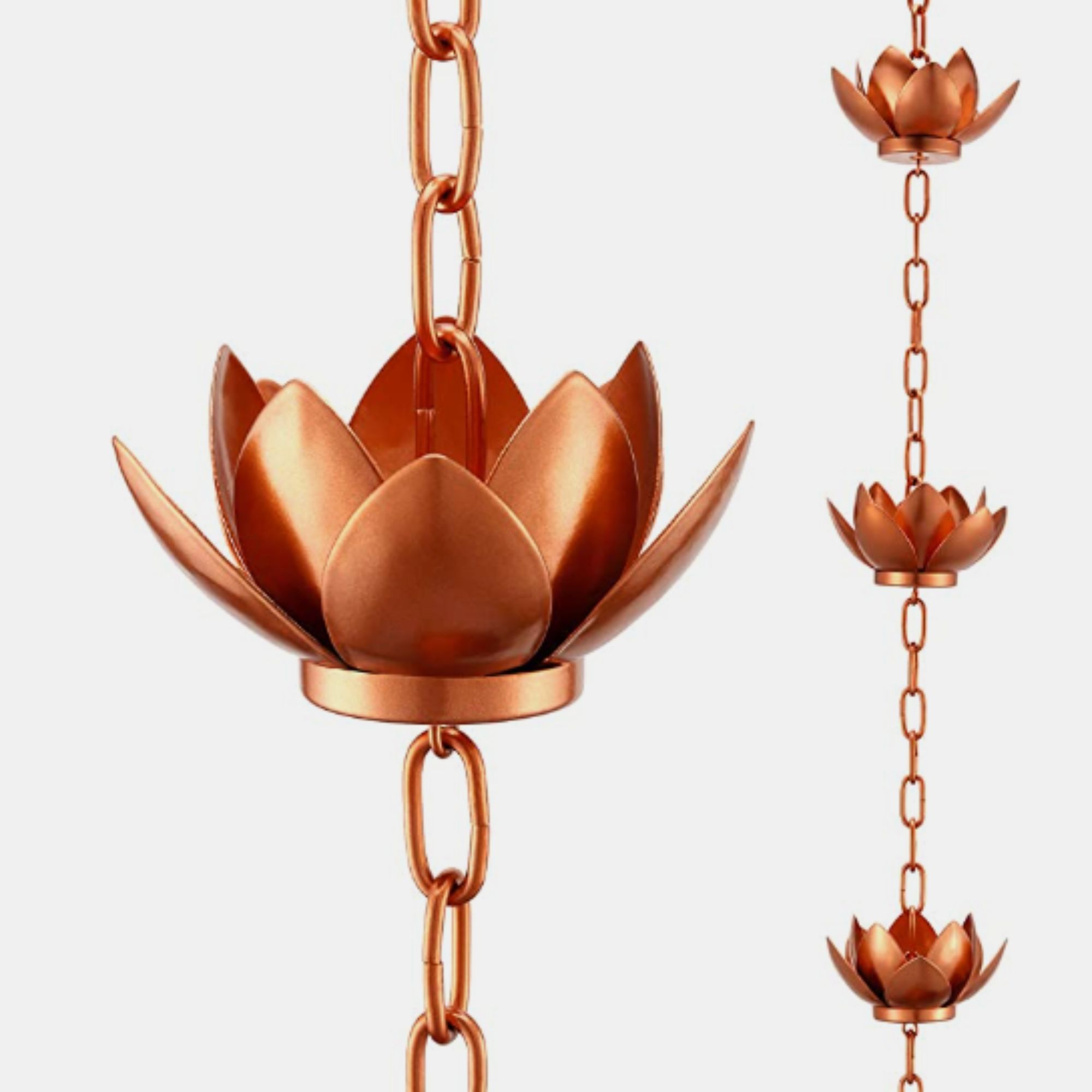I installed a rain chain to collect rainwater, and will never water my plants with tap water again
I finally tried out a rain chain and my plants have never looked better

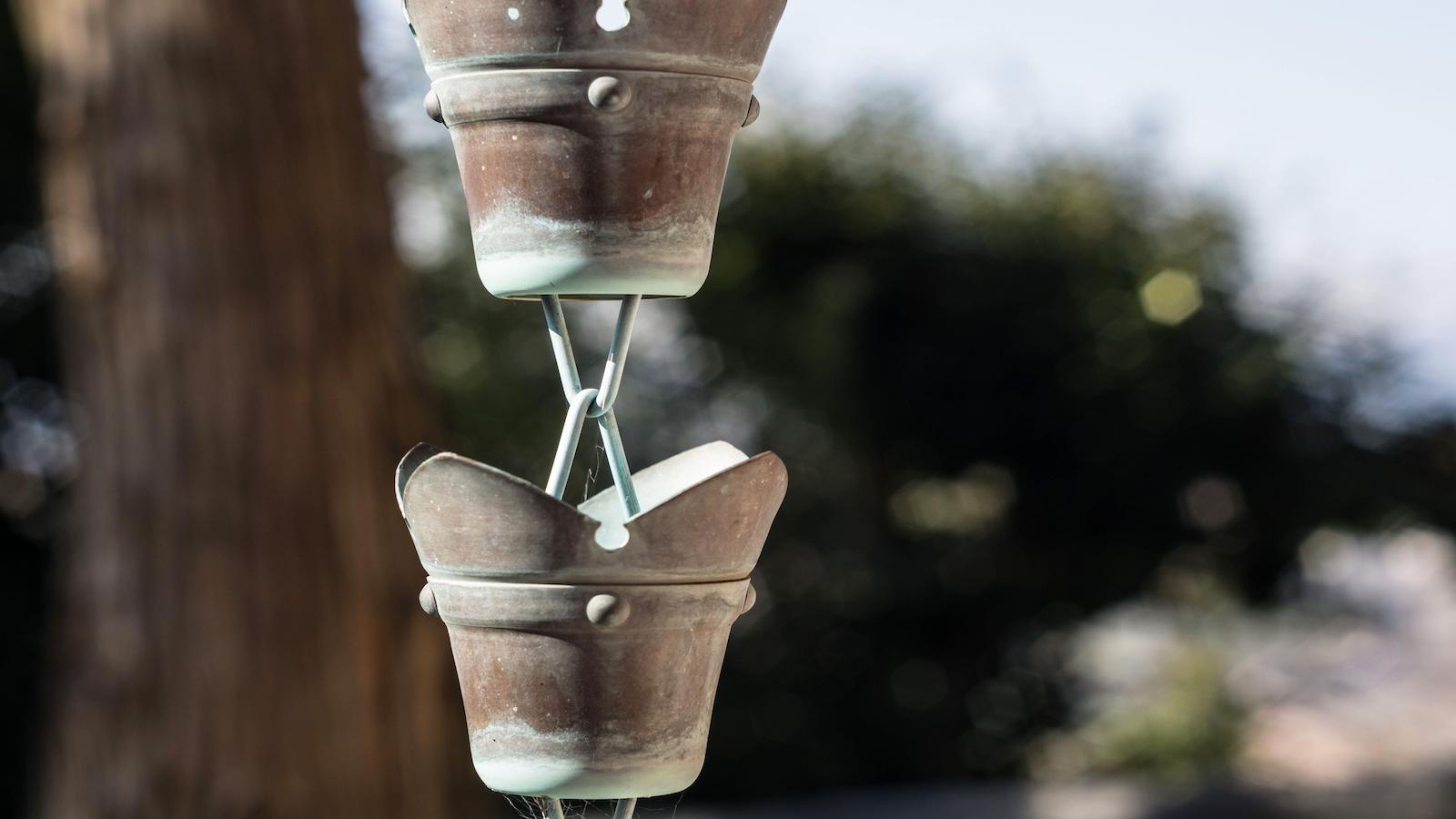
Design expertise in your inbox – from inspiring decorating ideas and beautiful celebrity homes to practical gardening advice and shopping round-ups.
You are now subscribed
Your newsletter sign-up was successful
Want to add more newsletters?

Twice a week
Homes&Gardens
The ultimate interior design resource from the world's leading experts - discover inspiring decorating ideas, color scheming know-how, garden inspiration and shopping expertise.

Once a week
In The Loop from Next In Design
Members of the Next in Design Circle will receive In the Loop, our weekly email filled with trade news, names to know and spotlight moments. Together we’re building a brighter design future.

Twice a week
Cucina
Whether you’re passionate about hosting exquisite dinners, experimenting with culinary trends, or perfecting your kitchen's design with timeless elegance and innovative functionality, this newsletter is here to inspire
If, like me, you spend a lot of time watering both your indoor and outdoor plants you will know just how much water you can get through. Whether you have a hosepipe or just a simple watering can, I am very conscious of just how much drinking water I am wasting on my plants. This is when I discovered the wonderful world of rain chains.
What is a rain chain? you might ask. I had absolutely no idea myself at first but now I simply would not live without one. This simple home addition directs rainwater off my roof (much like my gutters and drainpipe) but redirects it elsewhere rather than into a drain.
Now I have installed a rain chain, I will never go back. Here is why I think you should give it a go too.
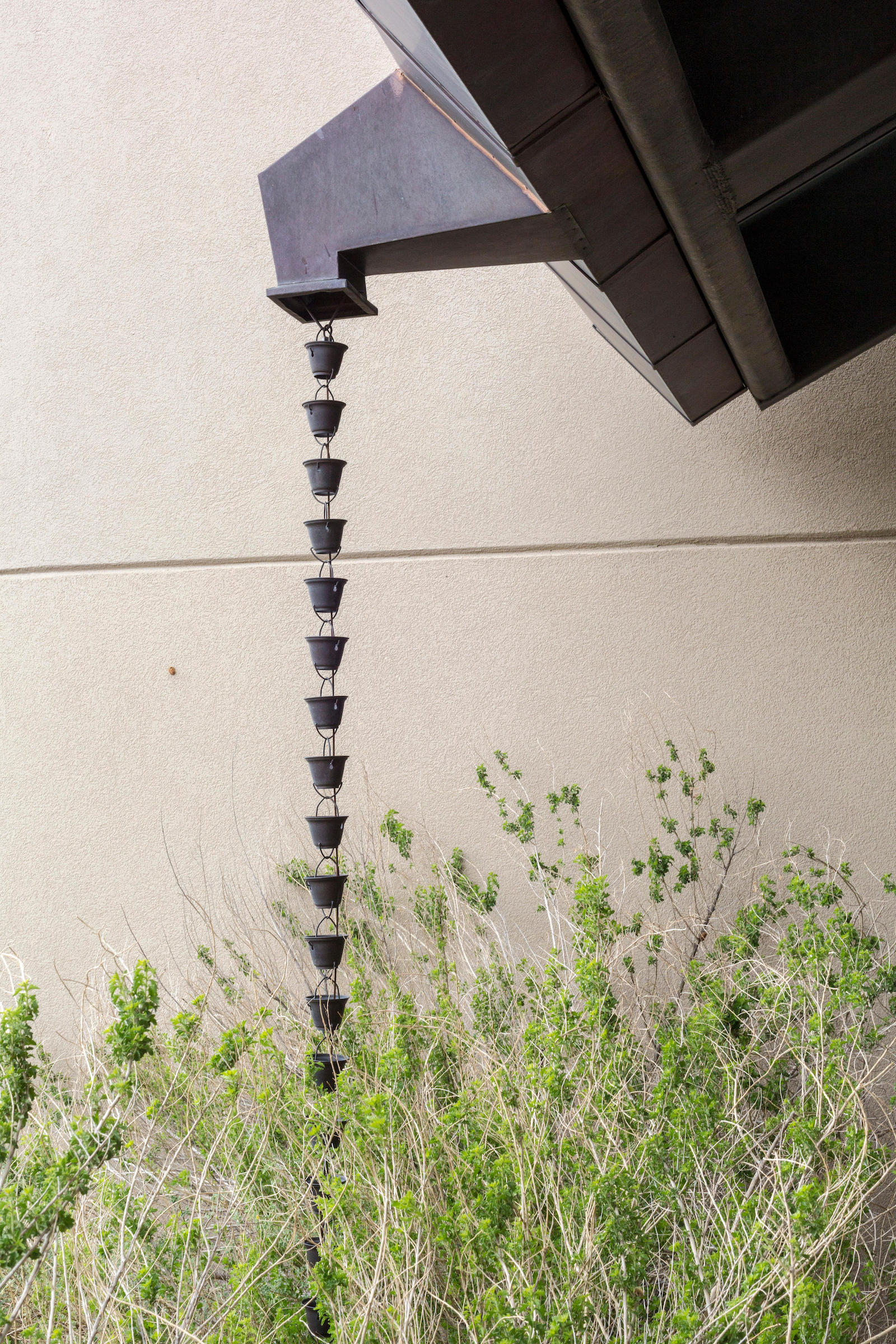
1. It helps me act more sustainably
As someone who is still learning when to water plants and how much water each different plant needs, I know for a fact that I have been wasting drinkable water by watering too much or too frequently (I am learning, however, I promise).
Because I am always looking for new ways to be sustainable at home, using a rain chain to redirect water into a rain barrel is a brilliant, inexpensive rainwater harvesting option that works wonders for someone who, like me, lives somewhere where it rains a lot – and I mean a lot. Probably too much for my liking.
If it rains so often, why are you saving water to water your plants? I hear you ask. Well, the benefits of the water butt are that I can store the excess water for the summer months when rain is less frequent as well as water my indoor plants to provide them with the proper nutrients and maintain the right pH level. Something that tap water is not as good at doing. Studies have proven that watering your plants with rain water actually helps them to grow quicker too!
2. It makes my backyard that much more relaxing
When I heard that rain chains originated in Japan I cannot say I was surprised. Not only does my rain chain look beautiful but it provides me with the relaxing sound of flowing water, almost as if I have garden water feature ideas. It really helps me to slow down and pay attention to the sights and sounds in my garden – something I really need to work on.
Design expertise in your inbox – from inspiring decorating ideas and beautiful celebrity homes to practical gardening advice and shopping round-ups.
I experimented with the best place to put my chain and water butt before finally deciding it was best near my back porch. Not only is this place easiest for me to go and fill my indoor watering can, but also allows me to sit on my porch under cover and enjoy the tranquil sounds when it rains.
It is inspiring me to redesign my yard to embrace some zen Japanese garden ideas!
3. It actually saves me money on my bills
By far the biggest advantage is the fact that my rain chain has already started to help me save money at home.
I am no longer having to spend as much of my well-earned money on utility bills as I have drastically cut my water consumption. This was especially noticeable last summer when I used my water butt as opposed to my hosepipe to water my garden ideas.
While you can make your own rain chain to save yourself even more money, as a first-time user I bought a rainchain from my local garden center, similar to this rain chain available on Amazon.
Are rain chains efficient?
While rain chains are a great way to collect rainwater in a water butt, or redirect rainwater to flowerbeds, they are not efficient enough on their own to remove water from your roof. Therefore, it is not advised to completely replace your drainage system, especially if you live in an area with heavy rainfall.
Are rain chains better than downspouts?
Rain chains are a different thing to downspouts and should not be used to replace them. While a rain chain does help to redirect water off of your roof down to the ground, it is not efficient enough on its own to remove large amounts of water. Traditional gutters and downspouts endure heavy rain better, and do not leave pools of standing water that can damage soil and encourage pests.

Chiana is Homes & Gardens’ kitchen appliances editor. With a lifelong passion for cooking and baking, she grew up experimenting in the kitchen every weekend with her baking-extraordinaire Mom, and has developed a great understanding of how tools and appliances can make or break your ideal relaxing kitchen routine.
